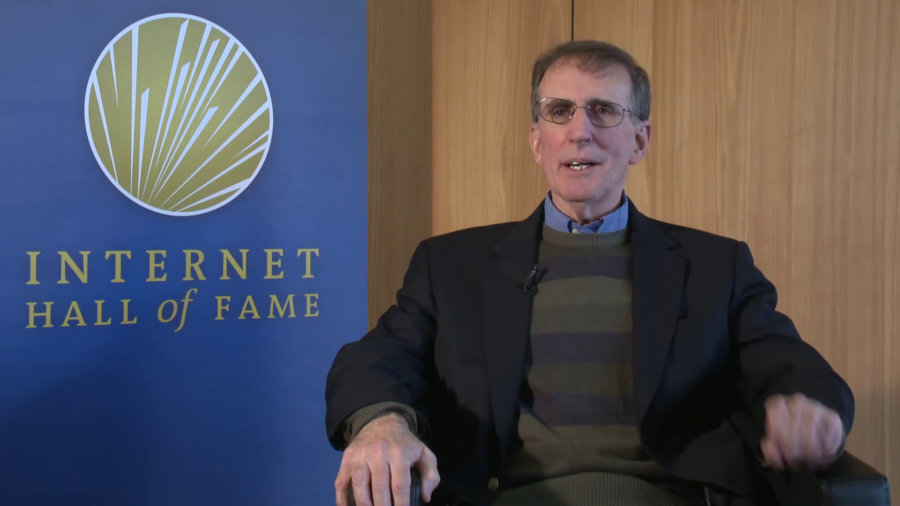I’m Larry Landweber. I’m from the United States. Professor emeritus from the University of Wisconsin in Madison. I got involved with networking sometime in the late 70s, mainly because I was looking around and discovering that people were getting into networking, email. And at the time I was department chair at University of Wisconsin, the computer science department, and was trying to understand what those capabilities would do for our faculty and students. And so I got interested, and as a result of that ended up putting in a proposal to the National Science Foundation to do an email system for theoretical computer scientists in the United States. And quite amazingly the National Science Foundation funded it.
That changed my life. I mean, that was a major inflection point where I decided that I would no longer work as a theoretician. I had been proving theorems for probably fifteen or twenty years. I was a logician in a computer science department. And I got so excited by the networking that I decided to just abandon the work in theory and continue.
So as a result of that, I ended up putting together a group of people in about 1979. And that group worked with me, and we worked with Bob Kahn and Vint Cerf from DARPA, and the people from NSF, and we put together a proposal to build a network for all of the research groups in computing in the United States. Quite a…oh, how should I put it? It was a leap of faith that we did that. And the goal of CSNET was to introduce networking into all of the computer science departments at universities, and also computer research groups in industry and government, throughout the United States.
After about five years, we had brought the entire academic computer science community on board. And the National Science Foundation, using CSNET as a model, decided to have a network for a wider community. And the result of that was through the rest of the 80s, all of the academic community in the United States got involved, and that led to the commercialization, which led to the Web, which led to where we are today. And so if I had to say what my proudest achievement [is,] it’s having played a role in laying the foundation for today’s Internet.
Unlike some of these people who claim they knew what was going to happen, I never really knew what was going to happen. I didn’t realize the world had changed until after I saw the World Wide Web. And in fact if the World Wide Web had not happened, we wouldn’t be having this discussion, because the Internet would not have jumped from the academic community to the real world. Real people were not going to be turned on by email and file transfer. It took the World Wide Web and the the global information utility.
My hope is the raising up of billions of people who live on a dollar or two dollars a day, and that with the Internet we can have things like being able to check on market conditions if they’re subsistence farmers who are selling their crops. Or being able to understand what their government is saying, really. Or being able to communicate. I mean, the Arab Spring, for me, was absolutely the embodiment of the promise of the Internet.
What I also would like to see, another hope for the Internet, is that it becomes integrated with other disciplines. And so for example medical disciplines. I think there are incredible opportunities to use the Internet to bring the benefits of medicine and state of the art medicine—we already are seeing robotic surgery. We can see that across cities, across rooms. And there are just an amazing number of possible applications that we haven’t yet really developed.
The thing that’s so critical for people who are working on the Internet is not to just get involved in the techy stuff but also to understand the societal part and the need to move the society in positive ways. And I think that’s something that’s very important that the Internet Society is working on. I really like the fact that there’s a mix of— At this meeting, for example, a mix of techie types who don’t really fully understand the societal issues, and the people who are sociologists and anthropologists, or authors, who get together and talk about these issues. Because together they can understand and maybe be forces for good.
